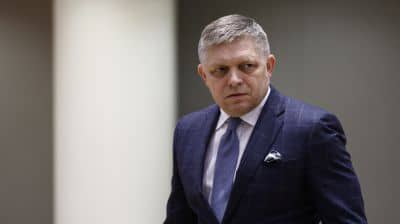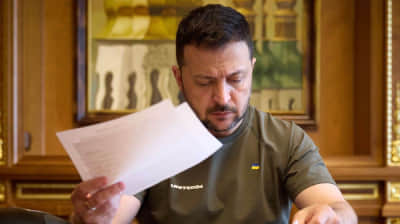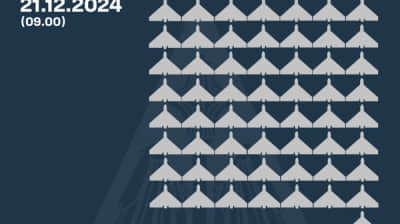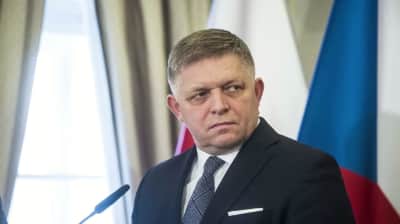Russians exploit reserves to keep up with pace of their offensive operations in Ukraine's east – ISW
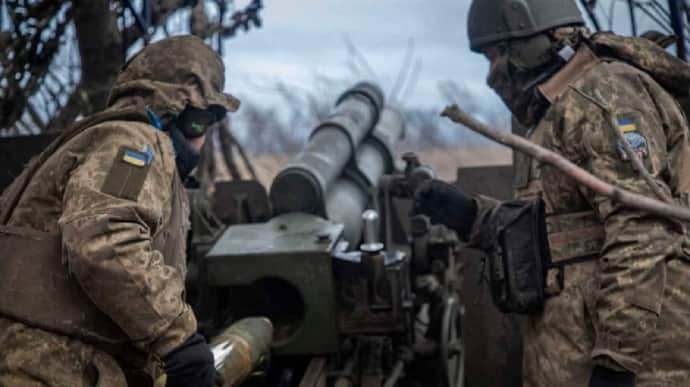
Analysts at the Institute for the Study of War (ISW) have stated that the Russians are deploying tactical and operational reserves to maintain and increase the intensity of their offensive operations in Ukraine’s east until the Ukrainians receive Western assistance.
Source: ISW
Details: Analysts suggested that Russian troops were likely deploying tactical and operational reserves to the fighting in Ukraine’s east to sustain and potentially increase the pace of their ongoing offensive operations.
Ukrainian military observer Kostiantyn Mashovets stated on 14 March that the Russian military command was deploying tactical and operational reserves to conduct Russian offensives on the Lyman front, near Bakhmut, and in western and southwestern Donetsk Oblast to prevent Ukrainian forces from stabilising the front line in these areas.
He added that many of these reserves are intended to exploit an anticipated Russian breakthrough of Ukrainian defences, rather than necessarily to support ongoing Russian offensives aimed at not letting Ukraine stabilise its positions.
Mashovets said that Russian troops still have enough reserves to further intensify their offensive operations, but these reserves are likely to be insufficient to allow the Russians to destroy Ukrainian defences.
ISW experts pointed out that Russian troops had previously struggled to achieve more than incremental minor tactical gains in Ukraine since mid-2022, and the introduction of tactical or even limited operational reserves does not change Russia's prospects for operationally significant success itself, as Russian troops had not yet demonstrated the ability to carry out well-thought-out mechanised manoeuvres that would allow them to quickly capture large pieces of territory.
It is also noted in the report that Russia's ability to make significant gains still depends on the level of Western support for Ukraine, and further delays in providing security assistance will increase the risk of operationally significant Russian gains in the long term.
In addition, ISW analysts said that the shortage of funds for Ukrainian defenders caused by the delay in Western security assistance might make the current Ukrainian front line more vulnerable than the relatively slow advance of Russian troops on various fronts indicated.
Quote: "Well-provisioned Ukrainian forces have proven that they can prevent Russian forces from making even marginal gains during large-scale Russian offensive efforts, and there is no reason to doubt that Ukrainian forces with sufficient Western security assistance would be able to stabilise the current frontline."
More details: ISW analysts predicted that difficult weather conditions and terrain in the spring of 2024 were likely to limit effective mechanised manoeuvre on both sides of the line of contact and further limit the ability of Russian forces to achieve significant tactical success.
It was suggested that Russian forces might also try to maintain the pace of their offensive operations until spring 2024, despite difficult weather and terrain, to take advantage of the Defence Forces' lack of supplies before promised Western security assistance arrives in Ukraine.
Russian troops are reportedly preparing for a new offensive in late May or summer 2024, and Western security assistance to Ukraine is likely to play a significant role in determining the prospects for this operation.
To quote the ISW’s Key Takeaways on 14 March:
- Russian Security Council Deputy Chairperson Dmitry Medvedev posted a detailed call for the total elimination of the Ukrainian state and its absorption into the Russian Federation under what he euphemistically called a "peace formula." Medvedev’s demands are not novel but rather represent the Kremlin’s actual intentions for Ukraine—intentions that leave no room for negotiations for purposes other than setting the precise terms of Ukraine’s complete capitulation.
- Ukrainian Commander-in-Chief Colonel General Oleksandr Syrskyi stated on 14 March that unspecified Ukrainian units that have been deployed to the front line for a long time have started rotations.
- Russian forces may be currently committing tactical and operational reserves to fighting in Ukraine’s east in an effort to maintain and potentially intensify the tempo of ongoing Russian offensive operations.
- The Russian ability to make significant gains is still dependent on the level of Western support for Ukraine, however, and continued delays in Western security assistance will increase the risk of operationally significant Russian gains in the long run.
- Reported Russian transfers of tactical reserves to new areas of the frontline demonstrate Russia’s likely ability to dynamically balance and reweight their offensive efforts.
- British outlet The Times reported on 14 March that the UK government believes that Russia deliberately jammed the satellite signal on a plane carrying UK Defence Secretary Grant Shapps back to the UK from Poland.
- Continued limited raids from Ukrainian territory into Russian border regions will likely force the Kremlin to choose between paying a reputational or resource cost in responding to the incursions.
- Russian forces advanced west of Avdiivka and in western Zaporizhzhia Oblast amid continued positional engagements across the theatre on 14 March.
- Russian regional governments have reportedly increased economic incentives for Russian volunteers to sign contracts for military service.
Support UP or become our patron!

